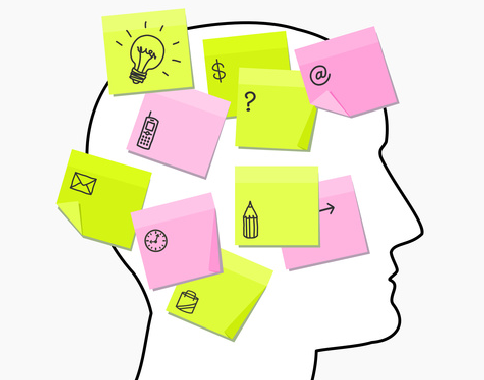You’re not alone. In fact, mild memory lapses are normal anytime but seem to increase as we age. The good news is that such forgetfulness is often preventable or reversible. You simply need to use some tricks to help reinforce the way your brain retains and sorts all the miscellaneous data it gets bombarded with every day. With a little practice, you’ll be able to retrieve exactly the information you want when you need it.
You don’t have to try all these ideas at once. Experiment with one at a time, if you like, working through the list.
-
Make associations.
If you’re having trouble remembering names, attach pieces of information to the person–a job, a hobby, an interesting fact, or all three. If you know Mary works for a computer company, think of her sitting at her keyboard; conjuring up that thought will help you recall her name the next time you see her. If Fred tells you he keeps boa constrictors as a hobby, that bit of information will forever be a key to Fred. -
Form mental images.
You can also try free associating with people’s names: Picture someone named Appleton sitting in an apple tree. If a man’s name is Sam, envision him wearing a white beard like “Uncle Sam.” -
Repeat and review.
Another strategy for remembering a new name is to use the old salesman’s trick of repeating it silently (Judy, Judy, Judy) and then work it into the conversation several times as well. Three times usually does it. Later, write down the name, along with some associative words about the person. Review your notes aloud before meeting the person again. Entering data into your brain by two separate inputs (speaking and writing) lays down a stronger biochemical path in your memory system. -
Chunk it.
If you’re trying to remember a large amount of information, isolate just the main three or four points or break the information into manageable chunks. Once you’ve mastered this, you’ll have an excellent foundation to hang the details from. Just keep working your way through until you’ve got it all. -
Pay attention.
Often it’s not your memory that’s at fault when you can’t remember where you put something. You simply got distracted and weren’t focused on the issue at hand. Next time, instead of carelessly tossing your keys aside as you head for the refrigerator, pause for a moment and say aloud, “I am putting my keys down right here.” This may work for your cell phone and your parking spot at the mall, too. -
Listen actively.
Concentrating on what someone is saying to you makes you more likely to remember it later. Don’t let your mind stray to buying your mother a birthday present while your husband is telling you that he’ll pick up the kids after school. Make an effort to focus on the matter at hand. -
Stay organized.
People who are well organized tend to have better memories than those who lead cluttered lives. If you are always losing things, such as your purse or your glasses, make a point of keeping these items in the same place all the time. Also, rely on the most popular tool used by your organized friends: your smartphone. This will help you keep track of things. -
Use memory aids.
Never be embarrassed about turning to a pocket notepad or your mobile device to keep track of information. Keeping pads and pencils all over your house and in your car is also a good idea–the mere act of writing something down will help you remember it. Using your smartphone‘s voice recorder and alarm may also be useful. -
Don’t worry.
Memory lapses are not usually a cause for concern. Only a tiny percentage of people–usually over age 65–develop Alzheimer’s disease, a form of intellectual decline that persists over time. Oddly enough, if you’re fretting about memory loss, that’s actually a sign that Alzheimer’s is unlikely. If you had Alzheimer’s, you wouldn’t even be aware of your memory lapses.
Now, where are those car keys anyway?





